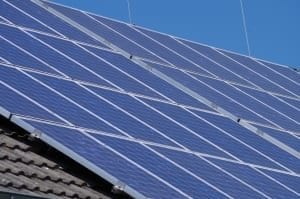More than 500 families are benefiting from hot water and reduced electricity costs at the Joe Slovo Housing Project in Langa, Cape Town thanks to the installation of solar water heaters at the development.
The individual housing subsidy quantum, currently at R160 573 per house, does not make provision for geysers or heated water, and these additions must currently be provided through partnership and funded through sources other than government. Partnering for success The Joe Slovo solar water heaters were made possible after the Department of Human Settlements received a funding commitment from the Danish International Development Assistance (DANIDA) Environmental programme to promote the mainstreaming of energy efficiency in the low-income housing sector. This support brought to fruition the development of the solar water heating project involving the installation. To date, of over 500 solar water heaters in the government delivered low-income housing project in the Joe Slovo Settlement, Precinct 3 in Cape Town. The partnership with DANIDA has assisted in creating a development partially reliant on green energy.Maximum effectiveness The solar water heaters at Joe Slovo have been positioned to ensure maximum effectiveness. The ideal situation would be for all of them to be placed on North facing roofs, however, due to the high density nature of the development, it was not possible to build all the units with North facing roofs. As a result, they had to be installed on roofs of different pitches, as per the data below.
- North facing roof: at 43 degrees facing north (optimal)
- South facing roof: at 17 degrees elevation facing north
- West and east facing roof: 43 degrees facing east and west respectively.







